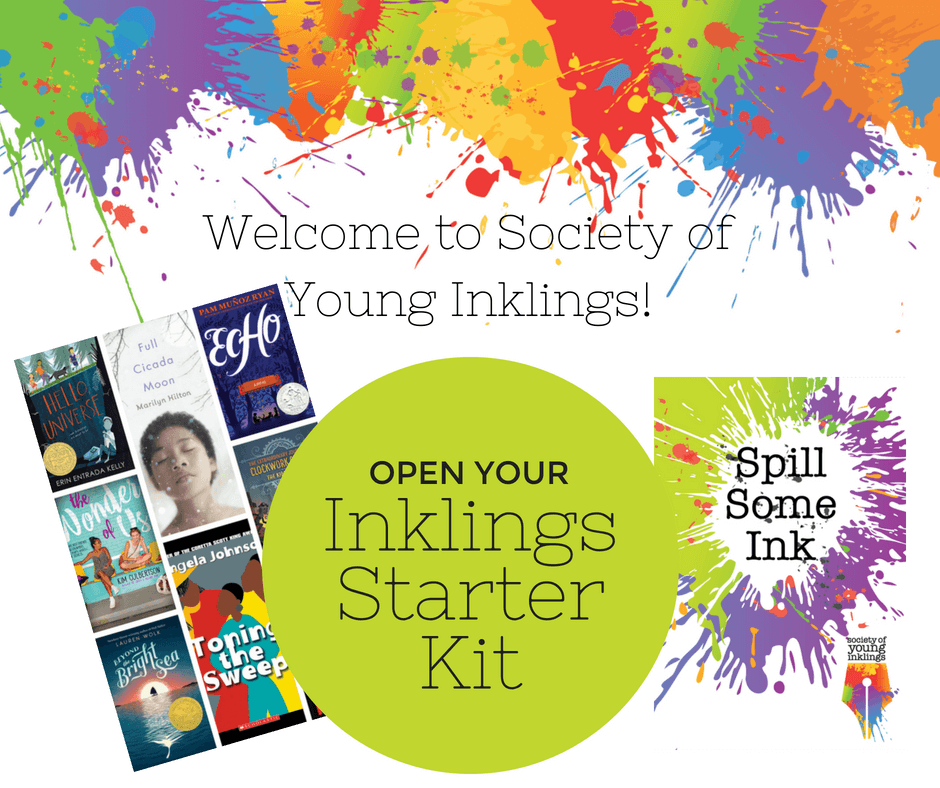For our May issue of Inksplat, we had a wonderful time talking to J. Elle, author of the NYT bestselling YA novel, Wings of Ebony, about being intentional when we choose whether to show or tell our readers a bit of information. She advises we show the moments we want the reader to hold on to if:
- they’re important to the immediate plot (help the reader picture the moment a murder suspect slips up drawing suspicion to themselves by describing what happened)
- they’re important to the change the character is undergoing (show the angst your indecisive character is under when forced to make a decision)
- they’re important to understanding the worldbuilding (demonstrating how magic works in your world versus telling us)
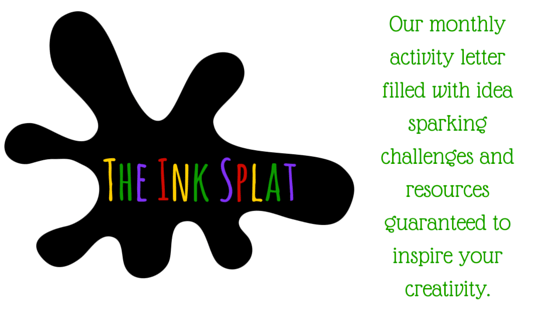
Writing Challenge
This month, your writing challenge is to go into your manuscript and find a page or a chapter where you’ve conveyed something to the reader through telling, rework at least three examples of this into SHOWing. To show, describe the physical actions or reactions the character is experiencing to more effectively convey the mental picture of what’s happening to the reader.
An example:
I feel so nervous. (TELLING)
My stomach sloshes as I smooth my clammy hands on my pants. (SHOWING)
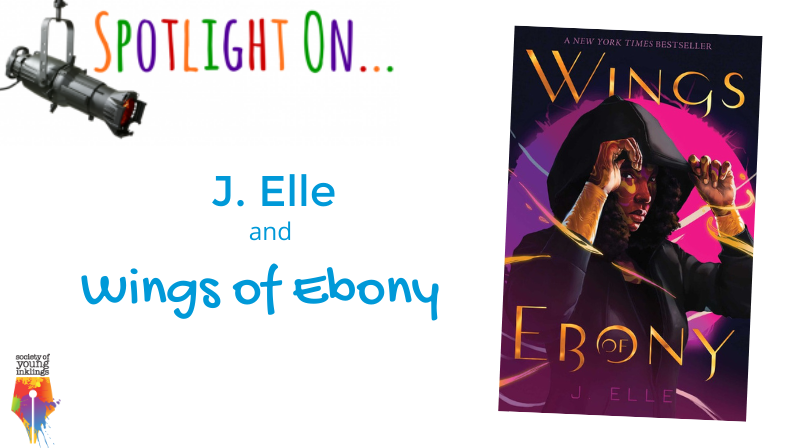
An Interview with J. Elle
Tell us about your inspiration for Wings of Ebony.
The idea started with the character. I had an image in my head of her standing over someone who had been hurt. And I could feel her emotions as I pondered this image in my head. She felt very sad because they were hurt and she felt very powerless to do anything about it. And so I, the writer, wanted to put power in her hands. I wanted her to feel empowered to do something about the sense of injustice that she felt for this person in her community and give her the magic necessary to enact change to protect her home. I started typing and let her speak to me on the page and show me what she wanted to tell me.
A lot of my own story came out in this book. I explored my community and where I’m from on the page and let that shine. Then, I started to play with it and play with these magical “what-ifs?” and rabbit trails in a million different directions. I’ve rewritten it multiple times, and I’ve done many drafts and revisions. It has been a process, but it all started with just an image of a girl who didn’t feel like she was powerful. And I wanted to write a book about how incredibly powerful she actually is.
What would you say to a young writer who worries that people won’t like their stories?
We all worry about that. Something that I learned is that you create the art, you put it into the world for dissection and analysis, and you give it to your readers, but what the art means to you is never taken away from you. The reason you wrote that story, and why it’s important and why you love those characters, is yours. No one can take that from you, and how someone else receives it and processes it and how much they enjoy it is their right because art is very subjective. So my encouragement to you is to write your story – the one that you want to tell, the one that you’re excited about – and that’s enough. If you love it, then that’s all that really matters.
What’s your process for coming up with the titles for your novels?
I have this weird title quirk. I cannot write until I have a title in mind – even if the title doesn’t stay the same. I literally cannot start typing without a title. I think the reason is that my title is usually indicative of sort of the mood and tone and vibe of the story and I can’t figure out my character’s voice until I understand what the vibe of the story is going to be. Is it going to feel gossipy? Creepy? Bubbly? The title sets me in that direction. It organizes things in my brain because it sets the tone and I lead my stories with voice. It’s probably the part of my writing that I’m pickiest about because I want my character’s voice to feel very, very real. I want it to be memorable. I want it to be distinct and unique. But I can’t quite figure out the character’s voice until I know the tone of the story, which usually flows from the title.
Do you have any tips on writing a good antagonist?
Make sure that your antagonist has a backstory; understand what they want, but also understand why they want it. They need to feel like a human character. They shouldn’t just be evil for evil’s sake, and there should be a reason that they’ve ended up the way they are. In their eyes, they should see themselves as right. So when you’re writing your antagonist, make sure that they have goals – clear goals – and that you understand what motivates their behavior.
You speak about how important it is to give back to other writers and how that is a way you fill yourself up. Can you tell us more about that?
I try to spend at least a couple of hours three to four days a week making sure that I’m serving someone else in my community, for example another author or writer by critiquing their work. I want to make sure that I’m pouring out as much as I’m pouring in, and that I’m serving others as much as people are buying my books and reading my books. I’m grateful, so I want to make sure I’m doing things for other people as well.
It was a big part of my life growing up, in my community and in the way I’ve seen my mother and my grandmother live. Community service and volunteerism are really important to me. And so in any industry that I’m in, I want to figure out a way to spend time doing that.
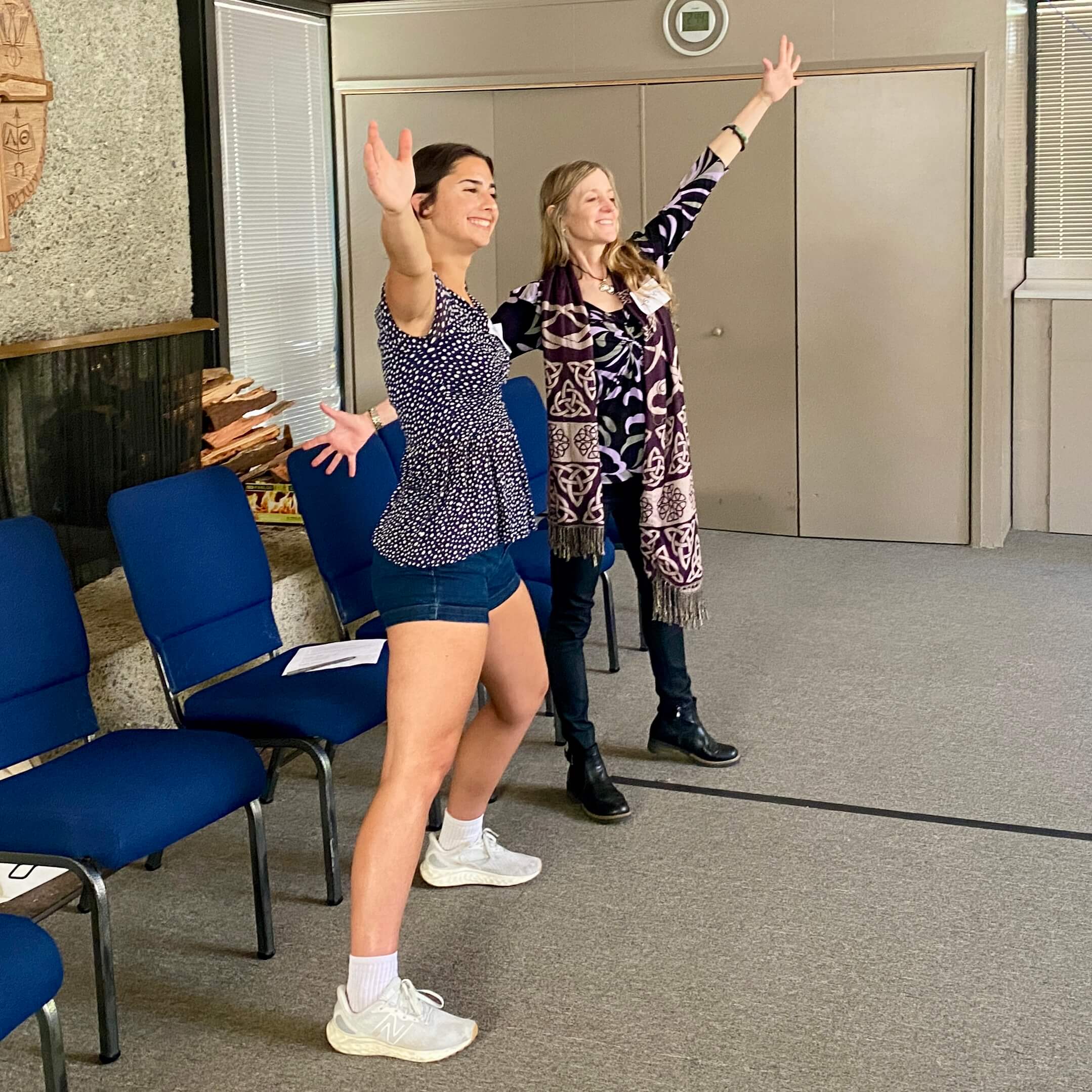
INKLINGS CONNECT
THE WAY WORDS MOVE US
Join us September 13 and 14 in Portola Valley, CA for our 2nd Annual Inklings Conference!
Featuring a keynote with author Joanna Ho, this conference includes creative writing breakout sessions in our beautiful redwood grove, workshops on using improv to step into a character’s shoes, experiments in word play, a storytelling workshop, and reflective writing to tap into your unique voice.
Keep your creativity flowing with our upcoming events!
JULY
- 7/22-25: Make Your Scenes Sparkle Summer Camp
- 7/22: Author Interview with JR Potter (Inklings Membership only)
AUGUST
- 8/6: Author Interview with John Hendrix (Inklings Membership only)
- 8/15: Teen Spilling Ink Writing Workshop (Inklings Membership only)
- 8/26: All Ages Spilling Ink Writing Workshop (Inklings Membership only)
SEPTEMBER
- 9/3: All Ages Spilling Ink Writing Workshop (Inklings Membership only)
- 9/8: 2024 Inklings Book Release Party (Online)
- 9/13-14: The Way Words Move Us Writing Conference in Portola Valley, CA
- 9/19: Teen Spilling Ink Writing Workshop (Inklings Membership only)
- 9/23: Author Interview with Roshani Chokshi (Inklings Membership only)
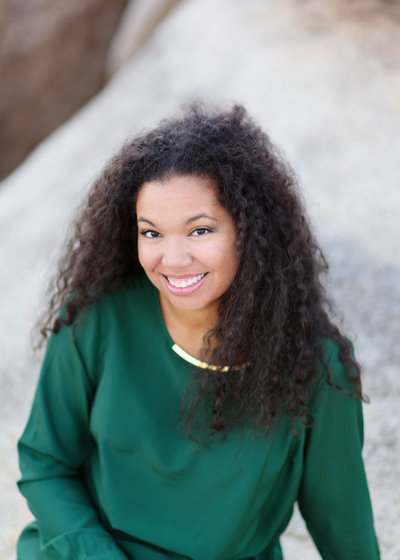
Thank you, J. Elle, for sharing with us! You can find out more about her work at https://authorjelle.com/
J. Elle is the author of the instant New York Times and Indie bestseller Wings of Ebony, a YA novel about a Black teen who must lean into her ancestor’s magic to protect her inner-city community from drugs, violence, and crime. Ms. Magazine calls it “the debut fantasy we need right now.” Elle is a former educator and first-generation college student with a bachelor’s degree in Journalism and a Master’s in Educational Administration and Human Development. When she’s not writing, Elle can be found mentoring aspiring writers, binging reality TV, loving on her three littles, or cooking up something true to her Louisiana roots.
SPARK YOUR CREATIVITY!
Subscribe to our monthly Ink Splat for an exclusive author interview, a writing challenge, and other fun (and free!) goodies, curated especially for youth writers.
As a bonus gift, we’ll send you an Inklings Starter Kit packed with creativity-sparking fun.
